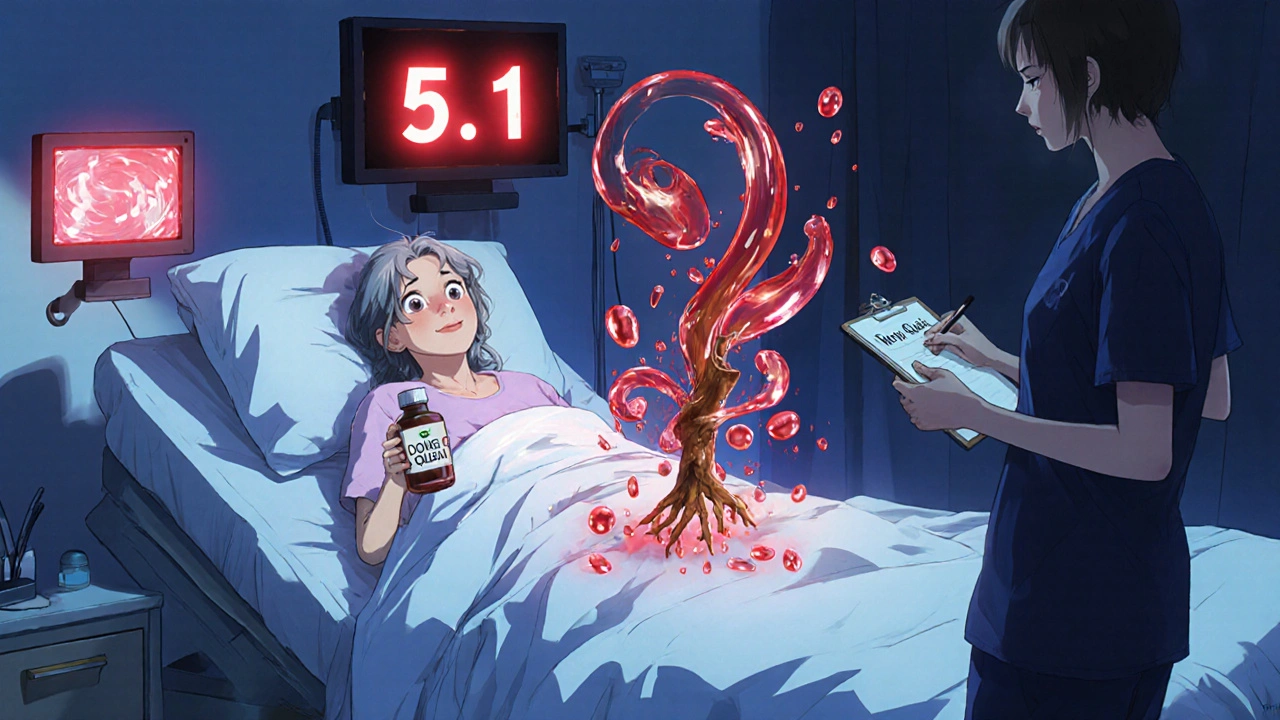
Dong Quai can dangerously increase the blood-thinning effect of warfarin, raising the risk of serious bleeding. Learn why this herbal supplement is not safe to use with anticoagulants and what to do instead.
When you're taking warfarin, a blood thinner used to prevent dangerous clots, especially in people with atrial fibrillation or artificial heart valves. Also known as Coumadin, it works by slowing down your blood's ability to clot—so even small changes in your diet or supplements can throw off your balance. Many women turn to Dong Quai, a traditional Chinese herb often used for menstrual cramps, hot flashes, and hormonal balance. Also known as Angelica sinensis, it's sold as a supplement to support women’s health—but it’s not harmless when mixed with prescription meds. The problem? Dong Quai has natural compounds that act like blood thinners too. When you take it with warfarin, the effects add up. Your blood gets too thin, and your INR—the number doctors use to measure clotting time—can spike without warning.
This isn’t theoretical. Real cases have been reported where women taking Dong Quai while on warfarin ended up in the ER with unexplained bruising, nosebleeds, or even internal bleeding. Your liver processes both substances, and Dong Quai can interfere with how warfarin breaks down, making it stronger than your doctor intended. Even if you feel fine, your INR might be climbing. And unlike prescription drugs, supplements like Dong Quai aren’t regulated for consistency—one batch might have more active ingredients than another.
There’s no safe dose of Dong Quai if you’re on warfarin. No study says it’s okay. The FDA doesn’t approve it for use with blood thinners, and major medical guidelines warn against combining them. If you’ve been using Dong Quai for menopause or period pain, talk to your doctor before stopping or starting it. You might need to switch to something else—like black cohosh or lifestyle changes—that won’t mess with your INR. And if you’re already taking both, get your INR checked right away. Keep a log of any new bruises, bleeding gums, or unusual fatigue. Those could be early signs your blood isn’t clotting the way it should.
What you’ll find below are real, practical guides that dig into the details you need: how INR monitoring keeps you safe, what other herbs and supplements can interfere with warfarin, and how to spot trouble before it becomes an emergency. These aren’t theory pieces—they’re tools made for people managing blood thinners every day, with real experiences and clear advice.

Dong Quai can dangerously increase the blood-thinning effect of warfarin, raising the risk of serious bleeding. Learn why this herbal supplement is not safe to use with anticoagulants and what to do instead.